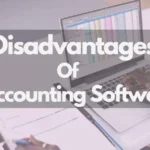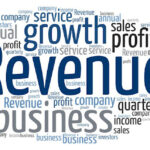When it comes to financial management, choosing the right accounting software is crucial for the success of any business. While cloud-based accounting software offers a number of benefits, such as accessibility from anywhere and automatic updates, it also has its fair share of disadvantages. From limited control over security and data privacy to dependence on internet connectivity and the potential for vendor lock-in, it’s important for businesses to carefully consider these 10 disadvantages before making a decision on a cloud-based accounting solution.
In this article, we will explore the top 10 Disadvantages of Cloud-Based Accounting Software and help you weigh the pros and cons to make an informed decision that best fits your business needs. So, whether you’re a small startup or a large enterprise, you’ll want to keep reading to gain a better understanding of the potential downsides of using cloud-based accounting software.
Disadvantages of Cloud-Based Accounting Software
Besides some demerits of cloud-based software, all applications are shifting to cloud platforms because of numerous advantages. Cloud-based accounting software has more advantages than disadvantages but it is very necessary to have an alternative option in cases of cloud issues. Major demerits of cloud-based accounting applications are discussed below.
1. Limited control over security and data privacy
Cloud-based accounting software stores data on remote servers, which can leave businesses feeling vulnerable if they don’t have control over the security measures in place. Businesses may be concerned about the potential for data breaches and unauthorized access to sensitive financial information.
2. Dependence on internet connectivity
Cloud-based accounting software requires a reliable internet connection to function properly. This can be problematic for businesses that operate in areas with spotty internet coverage, or for those that experience regular internet outages. In addition, it can also become a problem when working remotely or traveling.
Read Similar; Income and Expenditure Account
3. Possible data loss or corruption due to server crashes
Cloud-based accounting software providers are responsible for maintaining and managing the servers where data is stored. However, there is always a risk of server crashes or other issues that could result in data loss or corruption. This can be a major concern for businesses that rely on accurate financial data to make important decisions.
4. Limited customization options
Some cloud-based accounting software solutions offer limited customization options, which can be a problem for businesses that have specific needs. For example, businesses that operate in industries with unique regulatory requirements may need specialized features that aren’t available in a standard accounting software package.
Important Topics; What is Management
5. Limited access to the software during outages or maintenance
Advantages of Using Cloud-Based Accounting Software
Cloud-based accounting software is generally updated and maintained by the software provider. This can result in periods of time when the software is not available for use, which can be disruptive for businesses that rely on it for financial management.
6. The limited scalability of some solutions
Some cloud-based accounting software solutions may not be able to handle the growth of a business, which can be a problem for businesses that anticipate significant growth in the future.
7. Increased costs for businesses with high data storage needs
Businesses that generate a large amount of financial data may find that the costs of cloud-based accounting software are higher than those of on-premises solutions.
8. Limited integration with other non-cloud-based software
Some businesses may have existing software solutions that they use in conjunction with accounting software, such as inventory management or CRM systems. Integrating a cloud-based accounting software with these non-cloud-based systems can be difficult, making it hard to take full advantage of all the features that these systems offer.
9. Limited support for legacy systems
For businesses that have been using an accounting system for a long time, moving to a cloud-based solution can be a difficult process. Some of the data and processes may have to be changed or modified, which could be a time-consuming process, and also may not be fully supported by the new system.
10 Potential for vendor lock-in
Some cloud-based accounting software providers may make it difficult for businesses to switch to a different solution later on. For example, some providers may use proprietary data formats that are not easily transferable to other systems. This can make it difficult for businesses to change providers if they are not satisfied with the service or if they want to explore other options.
You must know about Cyber Security
Conclusion
In conclusion, while cloud-based accounting software offers many advantages, it’s important to be aware of its potential downsides. From concerns about data privacy to dependency on internet connectivity, these 10 disadvantages are important considerations for businesses of all sizes. By being aware of these potential issues, businesses can make an informed decision that best fits their needs.
Whether you decide to go with a cloud-based solution or another option, it’s important to choose software that meets the unique needs of your business and can help you stay on top of your finances. Ultimately, the key to success is finding the right balance between the benefits and disadvantages of cloud-based accounting software to ensure that it works for you and your business.




